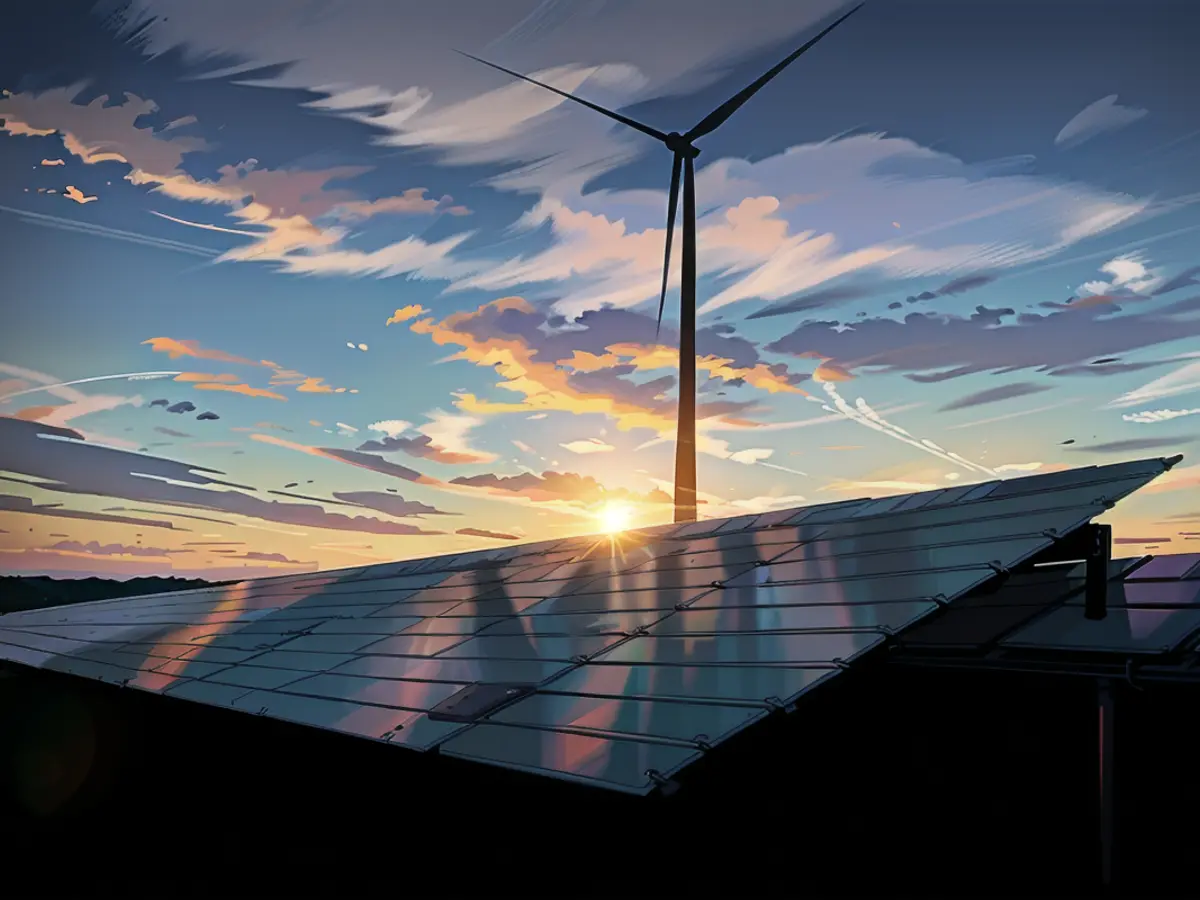Insightful examination. - Wind and solar power capacity in the EU nearly doubled.
The wind and solar power capacities in the EU have seen a substantial rise in recent years, expanding by about two-thirds, a findings from a recent analysis conducted by the think tank Ember. Between 2019 to 2023, these capacities grew by 65%, with Germany taking the lead among the member states. Germany is credited with contributing over 22% of this increase in wind and solar energy. Next in line is Spain, accounting for 13% of the rise.
As per the report, more than half of the 27 EU member countries saw a doubling of their wind and solar capacities during this span.
In terms of overall development, the solar energy sector is where the EU has made remarkable strides. Based on the report, solar energy capacity has doubled since 2019, reaching 257 gigawatts in 2022. The authors of the report explained that this is equivalent to installing more than 230,000 solar panels daily for the past four years. Meanwhile, wind energy capacity has grown by nearly a third to 219 gigawatts during the same period.
With the addition of these new wind and solar capacities, the share of wind and solar energy in the EU's overall electricity supply has risen from 17% in 2019 to 27% in 2023, as stated in the report.
Ember says the energy landscape in Europe is evolving. Sarah Brown, an expert from Ember,remarked, "The combination of ambitious, world-leading climate policies and concerted efforts to move away from Russian gas has created a strong, long-term tendency."
Since 2019, the EU's energy sector has witnessed significant changes. One of these is the "Green Deal" initiative, an all-encompassing strategy covering transport, industry, agriculture, and energy sectors.
By 2030, renewable energy is projected to make up almost 42.5% of the EU's total energy consumption. The energy crisis sparked by Russia's invasion of Ukraine in 2022 also accelerated the expansion of renewable energy. The EU aims to wean itself off Russian gas reliance.
Read also:
- The European Union (EU) will significantly benefit from the increased wind and solar capacities, as shown in the recent European elections' discussions about energy policies.
- According to the European elections' agenda, Germany and Spain have shown notable progress in their wind and solar power capacity, contributing significantly to the EU's overall energy mix.
- With Germany leading the way, there has been a notable increase in wind energy capacities across the EU, with new solar modules being installed at a rapid pace.
- The EU's ambitious climate policies and efforts to reduce reliance on Russian gas have played a significant role in doubling the solar energy capacities, reaching 257 gigawatts by 2022.
- As the European elections approach, there's a renewed focus on expanding wind and solar energy capacities, with a goal of making up almost 42.5% of the EU's total energy consumption by 2030.
- The energy crisis caused by Russia's invasion of Ukraine in 2022 has accelerated the EU's transition to renewable energy, with wind and solar energy capacities playing a significant role in reducing dependence on fossil fuels.
- Brussels, the political heart of the EU, has been closely monitoring the developments in wind and solar power capacities, aiming to promote a sustainable and environmentally-friendly energy mix in the region.








